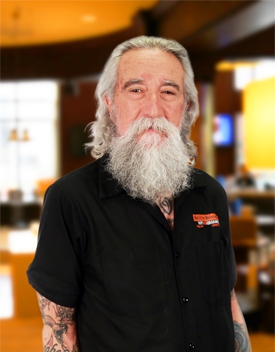In recent years, Australia has seen a proliferation of motorcycle clubs and unfortunately not all of these clubs get along. Known in Oz as Bikie Gangs, these clubs have had limited success in establishing peaceful relations. With the zealous media reporting of confrontations between clubs, the public became increasingly worried and police and government authorities began a systematic campaign aimed at dismantling the clubs.
Reading news reports about the chaos in Australia, one would think the motorcycle clubs have taken over the continent and are running wild in the streets. One of the areas most affected is the state of Queensland, where the most restrictive laws have been promulgated. Bikies are not allowed to wear colors or travel in groups of three or more if the club is considered a criminal enterprise.
In order to justify the encroachment on basic civil liberties, authorities report on huge arrest totals for various charges, securing popular support for Operation Resolute, the code name for the campaign to reduce criminal activity by these bike clubs. This all sounds fine because ridding the streets of the hordes of gangsters running ramshod at the expense of innocent bystanders is a necessary exercise of police power. But in closer examination, it appears the "bikie gangs" are not overly represented in the crime statistics. In fact, criminal activity by Criminal Motorcycle Gangs (CMGs) is very much under-represented according to Terry Goldworthy, Assistant Professor at Bond University, in The Conversation, an academic journal.
It appears that of the 384 people arrested in Operation Resolute, only 1.5% were charged under the anti-bikie laws, although according to authorities all of them were participants in criminal gangs. Checking further, of the 817 charges that stemmed from the arrests, only 28 or 3.4% can be considered organized crime charges. This is hardly an epidemic of criminal bike gang activity. In fact, in Queensland, 73,309 offenses were reported in October and November, 2013. The so-called bikies accounted for only 1% of those offenses.
One of the most egregious violations of civil rights under Operation Resolute occurred recently when five members of a targeted bikie gang were arrested while buying icecream for their kids during a family outing on the Gold Coast. Because there were five of them in a group, it was a violation of the "association" clause in the new regulations in Queensland.
There are calls for reforming the current laws in Queensland and even some calling for the total removal of the current law. It may seem hard to believe that such drastic measures could take place when the targeted offenders represent such a small part of the crime statistics and the 384 people arrested in the operation listed above were supposedly acting alone and did not commit their offenses as some criminal enterprise. But history has shown us time and again that if a certain group or class are targeted and this group does not conform to society's picture of what a citizen should act like or look like, then it becomes easy for over zealous enforcement and violations of civil rights, as long as that enforcement doesn't directly or immediately threaten the rest of society.

